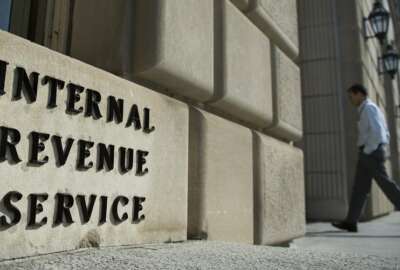The five-week partial government shutdown couldn’t have come at a worse time for the IRS, National Taxpayer Advocate Nina Olson had told Congress, but following a House Ways and Means oversight subcommittee hearing Thursday, she said she remains uncertain as to whether the shutdown’s impact would warrant pushing back this year’s filing season deadline.
“I don’t know whether the shutdown rises to the level of wanting to extend the deadline, because the shutdown had the impact on the IRS, but it didn’t have an impact on taxpayers,” Olson told reporters Thursday following what will likely be her final appearance before the committee.
Reps. Lauren Underwood (D-Ill.) and Rep. Sean Casten (D-Ill) introduced a bill Wednesday that would push back the tax filing season deadline to May 20, citing the partial government shutdown as the reason for the postponement.
Casten said taxpayers were left “high and dry” during the shutdown, when calls for tax help went unanswered at IRS call centers and at tax-help field offices across the country.
“When they visited the walk-in taxpayer assistance centers, they found locked doors. This is unacceptable,” Casten said in a statement. “I am proud to introduce a bill that would give individual tax filers more time to prepare their return.”
Underwood called the bill “common sense legislation” that would help give taxpayers extra time to ask questions and file their tax returns this year.
While the shutdown ended before the beginning of the filing season, the agency has had to catch up on activities impacted by the shutdown, including early January filing season training that was postponed for temporary employees.
Last year, the IRS extended the tax filing season deadline by one day after a hardware issue on Tax Day prevented some taxpayers from submitting tax returns online.
Olson said her office hasn’t looked into the legal authority the IRS has to push back the deadline, but added agency officials have told her they don’t have much wiggle room to work with.
“Whenever I’ve talked to them in other instances, they’ve said that authority is very, very narrow, but they found the authority to be able to do that then.”
Based on her conversations with tax preparers, Olson said more taxpayers have requested an extension on their tax returns this season “because they just can’t get to that work.”
For that reason, Olson said her office has looked at whether it would make sense to move the filing season back.
“If you had moved it back to May 15, would you get some more returns in, rather than Oct. 15? And I don’t know the answer to that, but that’s something that we’ve been thinking about,” Olson said.
In a blog post last week, Olson announced she plans to retire from her current post at the end of July. She said she’s had conversations with IRS Commissioner Chuck Rettig about choosing her successor.
“I have a recommendation,” Olson said, but declined to specify whether that was a single name or a shortlist.
Since the start of the tax filing season on Jan. 28, Olson said the IRS has processed more than 47 million tax returns, which she said was “comparable” to data from last year’s filing season. About 81 percent of the tax returns so far have yielded refund checks.
The IRS has reported a 57 percent level of service for its accounts management phone lines, its primary source of over-the-phone tax help. But assistors have only been able to answer about 18 percent of taxpayer calls.
Olson said the decline in the IRS’s telephone service has “almost surely been budget-driven,” and demonstrates that the agency is “stretched so thin that things could go very badly wrong, or that just taxpayers will give up trying to reach the IRS and not get the assistance that they need.”
“When you look at the numbers of calls that actually come in, there’s clearly a demand, and we are simply not able to answer those calls,” she said.
When the IRS can’t process the correspondence it receives, Olson told lawmakers it kicks off an “endless cycle” where taxpayers try to call the agency more, and then when taxpayers can’t get through on the phone, they resort to writing more letters to the agency.
“For taxpayer service, in particular, the answer is certainly you can get gains from online services and things like that, but the only way to really resolve taxpayer service issues is you need more employees providing those services — answering those calls and dealing with that correspondence,” she said.
Since 2010, the IRS has seen its workforce reduced by 23 percent.
With more than a month to go in the filing season, Olson declined to give an overall assessment of how the IRS has handled the filing season.
“It is too soon to provide a comprehensive assessment,” she said. “Trends that are apparent today may reverse.”
Copyright
© 2024 Federal News Network. All rights reserved. This website is not intended for users located within the European Economic Area.

